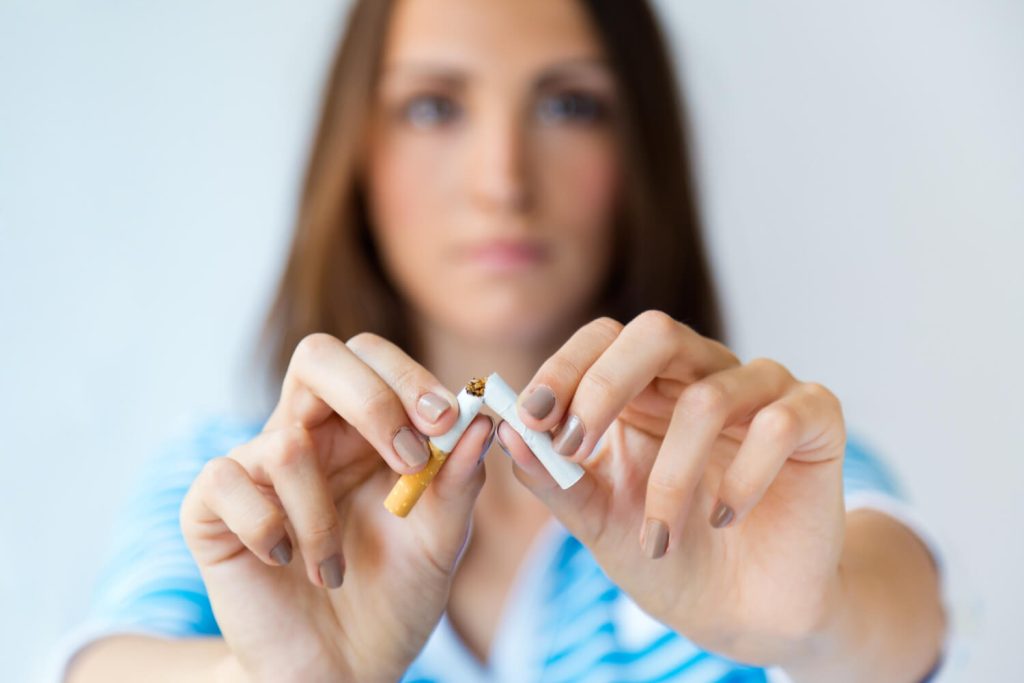People often focus on choosing the right procedure, the right surgeon, and the best recovery plan. Yet, one question tends to appear right before surgery: “Does smoking or vaping really make a difference?”
The truth is that understanding how nicotine and vaping affect cosmetic surgery results helps patients prepare their bodies for better healing and long-term outcomes.
Many people underestimate how much this single habit can interfere with the body’s ability to recover — and with how those final results look and feel.
What nicotine does inside the body
Nicotine acts as a powerful vasoconstrictor. It narrows blood vessels and limits the amount of oxygen-rich blood that reaches tissues. Without enough oxygen, cells struggle to repair themselves, and wounds take much longer to close.
Studies mentioned by organizations like the American Lung Association and Johns Hopkins Medicine show that nicotine interferes with collagen production, affects circulation, and increases the chance of skin necrosis.
Even vaping, often perceived as a safer alternative, exposes the body to liquid nicotine that quickly absorbs into the bloodstream.
So, whether it comes from a cigarette, vape pen, or nicotine gum, the impact on tissue healing remains significant.
How nicotine and vaping affect cosmetic surgery results
Nicotine limits oxygen flow to the surgical area, which can lead to a higher risk of complications.
When blood vessels constrict, incisions heal more slowly, and tissues may not receive the nutrients they need.
Surgeons often notice that patients who use nicotine face:
- Delayed wound healing
- Open or separated incisions
- Skin necrosis (death of tissue)
- Infection around sutures
- Noticeable or irregular scars
According to the American Society of Plastic Surgeons (ASPS), patients who smoke or vape show up to six times more complications during recovery compared to non-smokers.
In practical terms, this means a tummy tuck might leave wider scars, a facelift could result in uneven healing, and a breast augmentation may show more swelling or poor skin quality around the incision area.
Procedures most affected by nicotine and vaping
While nicotine influences every type of surgery, cosmetic procedures tend to reveal its effects more visibly. Some of the most impacted surgeries include:
Tummy tuck and liposuction
The abdominal area depends on strong blood circulation to recover. When nicotine reduces oxygen delivery, the risk of fluid buildup (seroma) and tissue necrosis increases significantly.
Breast augmentation and lift
Patients who use nicotine before or after surgery often experience more inflammation, delayed healing, or implant exposure due to poor tissue recovery.
Facelift and blepharoplasty
Facial procedures rely heavily on delicate blood vessels. Nicotine limits their ability to nourish skin layers, leading to visible scarring or uneven skin tone.
Brazilian Butt Lift (BBL)
Fat graft survival depends on oxygen supply. Nicotine reduces this process, leading to irregular fat absorption and less predictable contour results.
Is vaping safer than smoking before surgery?
Many patients believe vaping might be a cleaner or milder option. The FDA and Mayo Clinic have explained that e-cigarettes still deliver nicotine and contain several other chemicals that irritate the respiratory system.
Even nicotine-free vapes include additives that may trigger inflammation or alter how the body metabolizes anesthesia. So, while the smell and smoke might differ, the internal reaction often remains just as harmful to the healing process.
In other words, the difference between smoking and vaping becomes less about what you inhale — and more about how your body reacts to nicotine itself.
How long before surgery should nicotine use stop?
Plastic surgeons in the United States usually recommend stopping nicotine use four to six weeks before surgery. This timeline gives the body time to restore proper blood flow and oxygenation.
After surgery, continuing without nicotine for at least two to three weeks supports wound healing and reduces the chance of infection.
Some clinics test for cotinine, a nicotine byproduct that remains in the bloodstream even after the last puff or vape.
Long-term aesthetic impacts
Nicotine doesn’t only slow down immediate recovery. It also accelerates aging over time. Research from the National Institutes of Health (NIH) points out that nicotine damages collagen and elastin — the fibers responsible for skin firmness and elasticity.
When these fibers break down, skin starts to sag earlier, wrinkles appear deeper, and scars remain more visible.
That’s why even months after surgery, patients who continue smoking or vaping might notice dullness or poor skin texture around treated areas.
How to quit before surgery
Giving up nicotine never comes easily, but it becomes necessary for achieving the best surgical results. Some approaches that may help include:
- Nicotine replacement therapy (with caution): Patches, gums, and lozenges can support the first phase of withdrawal, but they should be discontinued several weeks before surgery. The American Cancer Society recommends stopping these products at least two weeks before any surgical procedure.
- Prescription medications: Varenicline and bupropion are FDA-approved medications for smoking cessation. These drugs may increase the likelihood of quitting successfully but require a doctor’s prescription and supervision.
- Behavioral therapy: Working with a psychologist or joining support groups often makes a significant difference. Many health insurance plans in the United States cover smoking cessation programs.
- Apps and digital resources: Several tech tools can help track progress and maintain motivation. Smokefree.gov, managed by the National Cancer Institute, offers free resources for people ready to quit.
Why being honest with your surgeon matters
The temptation to hide nicotine use from your plastic surgeon may feel strong, especially after scheduling and paying for the procedure. However, that omission places your health at serious risk.
Board-certified plastic surgeons under the American Board of Plastic Surgery follow strict safety protocols. When you provide incomplete information about your history, your doctor cannot properly evaluate potential risks or take the extra precautions that could protect you.
At Smart Plastic Surgery in Miami, transparency between patients and the medical team forms the foundation for satisfying results. Experienced professionals would rather postpone a procedure to ensure you are in the best possible condition than risk your safety and the quality of your aesthetic outcome.
A healthier body heals better
Surgery represents a new beginning, and the body needs room to heal. Choosing to pause nicotine and vaping before and after surgery becomes an act of self-care — one that shapes both recovery and results.
Better circulation, smoother scars, and longer-lasting improvements all start with that single decision.
Thinking about surgery? Schedule a consultation with our board-certified surgeons at Smart Plastic Surgery in Miami and discover how personalized preparation can enhance your transformation safely.
FAQ
Most surgeons recommend stopping nicotine use four to six weeks before cosmetic surgery to restore blood flow and improve healing.
Even nicotine patches release small amounts of nicotine into the bloodstream, which can still affect circulation and delay recovery.
Vaping after surgery may slow healing, increase the risk of infection, and lead to visible scarring or tissue complications.
Yes. Nicotine can alter how the body processes anesthesia and increase the risk of respiratory or cardiovascular issues during recovery.
Exposure to secondhand smoke may irritate airways and reduce oxygen levels, which can compromise healing and slow recovery.



